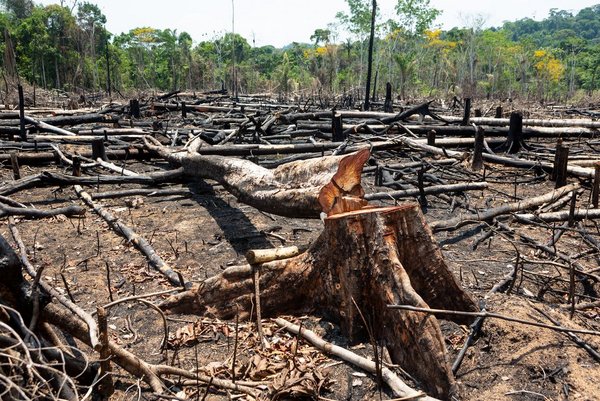 Read this article in French
Read this article in French- Share this article
- Subscribe to our newsletter
Limiting emissions from bioenergy
Demand for modern biofuels is expected to grow substantially in order to mitigate climate emissions. However, these fuels are far from being a climate neutral alternative to gasoline and diesel, experts from the Potsdam Institute of Climate Impact Research (PIK) point out in June 2023.
A new study shows that under current land-use regulations, CO2 emission factors for biofuels might even exceed those for fossil diesel combustion because of large-scale land clearing related to growing biomass. Before bioenergy can effectively contribute to achieving carbon neutrality, international agreements need to ensure the effective protection of forests and other natural lands by introducing carbon pricing, the PIK team of experts argue.
The study results underline the need for a paradigm shift in land-use policy, they say. If cultivation for bioenergy grasses is not strictly limited to marginal or abandoned land, food production could shift, and agricultural land use could expand into natural land. This would cause substantial carbon dioxide emissions due to forest clearing in regions with weak or no land regulation.
These indirect effects of bioenergy use are a challenge for policy-makers, as food and bioenergy markets are globally connected but beyond the control of individual national policies. Tragically, the regulatory gap in the land-use sector would keep bioenergy supply cheap, while pushing the energy sector to phase out fossil fuels even faster to compensate for additional emissions from land-use change. This spiral in turn increases the demand for bioenergy.
Without additional land-use regulation, land clearing related to the production of modern biofuels results in CO2 emission factors – averaged over a 30-year period – that are higher than those from burning fossil diesel, according to the study. The results show that a globally comprehensive land protection or carbon pricing scheme would avoid high CO2 emissions from land-use change related to the production of modern biomass.
Phasing out fossil fuels will generate bioenergy demand worth hundreds of billions of US dollars by mid-century, the authors explain. The agricultural sector will try to take advantage of these new opportunities, but potential expansion into high-yield areas often coincides with high upfront CO2 emissions from land conversion. Only reducing the demand for bioenergy will not solve this problem.
What is crucial is not the price level itself, but the comprehensiveness to cover nearly 100 per cent of all forests and other natural lands, the research team find. Pricing all emissions from land-use change with only 20 per cent of the CO2 price in the energy system is more effective than a protection scheme covering 90 per cent of all forests globally. The protection of carbon stored in existing forests should be placed high on the international policy agenda as fossil fuel phase-out progresses and regulations in the land-use sector lag behind.
The study results show that bioenergy can be produced with limited emissions under effective land-use regulations.
(PIK/ile)
Read more on the website of the Potsdam Institute for Climate Impact Research





Add a comment
Be the First to Comment